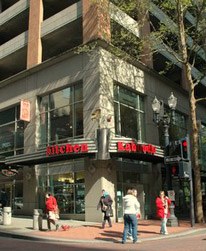Green Programs
LEED
LEED (Leadership in Energy and Environmental Design) certification provides independent, third-party verification that a building project meets the highest green building and performance measures. All certified projects receive a LEED plaque, which is the nationally recognized symbol demonstrating that a building is environmentally responsible, profitable and a healthy place to live and work.
There are both environmental and financial benefits to earning LEED certification.
LEED-certified buildings:
- Lower operating costs and increase asset value.
- Reduce waste sent to landfills.
- Conserve energy and water.
- Create a healthier and safer environment for occupants.
- Reduce harmful greenhouse gas emissions.
- Qualify for tax rebates, zoning allowances and other incentives in hundreds of cities.
- Demonstrate an owner’s commitment to environmental stewardship and social responsibility.
Eligibility
Commercial buildings as defined by standard building codes are eligible for certification under the LEED for New Construction, LEED for Existing Buildings, LEED for Commercial Interiors, LEED for Retail, LEED for Schools and LEED for Core & Shell rating systems. Building types include – but are not limited to – offices, retail and service establishments, institutional buildings (e.g., libraries, schools, museums and religious institutions), hotels and residential buildings of four or more habitable stories.
RecycleWorks
Schlesinger Companies is a participating member and BlueWorks Business award winner (2007-2009) of the City of Portland’s RecycleWorks program. Through this program, the City of Portland’s Office of Sustainable Development helps businesses set and meet goals for sustainable practices, and then gives out awards for those businesses that meet or exceed those goals.
Businesses are a key part of our community’s ability to triumph over our growing waste generation. The RecycleWorks award is presented to businesses serving as a role model for others in the City, reducing, reusing, recycling, making sustainable purchasing choices and going beyond recycling by participating in at least one other sustainable practice.



